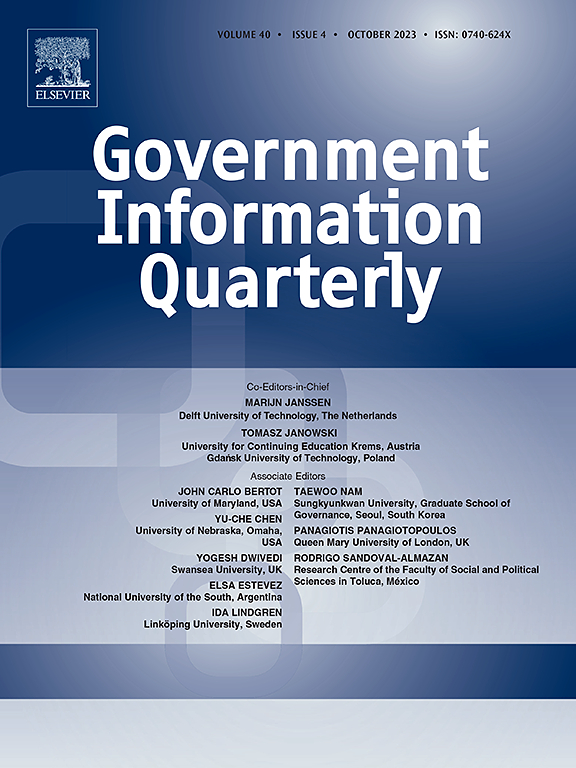效益下滑:在丹麦市政当局实施电子文档管理长达一年的过程
IF 10
1区 管理学
Q1 INFORMATION SCIENCE & LIBRARY SCIENCE
引用次数: 0
摘要
政府机构在数字化流程和服务方面投入了大量资源。为了从这些投资中获益,必须明确规定预期的收益,并有系统地追求这些收益。否则,它们可能会滑落。利益滑脱是一种情况,即特定的利益没有实现,即使它们继续被认为是可以实现的,至少部分可以实现。本研究调查了丹麦一个自治市实施电子文档管理的效益下滑。在访谈的基础上,我们确定了福利下滑的三个原因。首先,不可操作的利益规范使得很难看到指定的利益和实现它们所必需的工作流程变更之间的联系,从而使员工不知道要实现哪些变更。其次,延长的实现过程增加了外部事件破坏该过程的机会,从而在实现利益之前将注意力转移到其他事项上。第三,缺乏福利跟踪使得福利实现的状态不确定或忽视了福利尚未实现的迹象,从而延长或中断了福利实现过程。在被研究的市政当局,指定的福利已经下滑了三年。未来的研究应探讨如何在较晚、局部和低成本的情况下恢复效益实现计划。本文章由计算机程序翻译,如有差异,请以英文原文为准。
Benefits slippage: The yearlong process of implementing electronic document management in a Danish municipality
Government institutions invest substantial resources in digitalizing their processes and services. To benefit from these investments, the expected benefits must be specified and systematically pursued. Otherwise, they will likely slip. Benefits slippage is the situation where specified benefits do not materialize even though they continue to be seen as, at least partially, realizable. This study investigates benefits slippage in the implementation of electronic document management in a municipality in Denmark. On the basis of interviews, we identify three reasons why benefits slipped. First, inactionable benefits specifications make it difficult to see the link between the specified benefits and the work-process changes necessary to realize them, thereby leaving staff without directions about what changes to implement. Second, a prolonged realization process increases the opportunity for external events to disrupt the process, thereby shifting attention to other matters before the benefits have been realized. Third, absent benefits follow-up leaves the status of benefits realization uncertain or ignores indications that benefits have not been realized, thereby prolonging or discontinuing the realization process. In the studied municipality, the specified benefits had slipped for three years. Future research should investigate how benefits-realization initiatives can be resumed late, locally, and at low cost.
求助全文
通过发布文献求助,成功后即可免费获取论文全文。
去求助
来源期刊

Government Information Quarterly
INFORMATION SCIENCE & LIBRARY SCIENCE-
CiteScore
15.70
自引率
16.70%
发文量
106
期刊介绍:
Government Information Quarterly (GIQ) delves into the convergence of policy, information technology, government, and the public. It explores the impact of policies on government information flows, the role of technology in innovative government services, and the dynamic between citizens and governing bodies in the digital age. GIQ serves as a premier journal, disseminating high-quality research and insights that bridge the realms of policy, information technology, government, and public engagement.
 求助内容:
求助内容: 应助结果提醒方式:
应助结果提醒方式:


